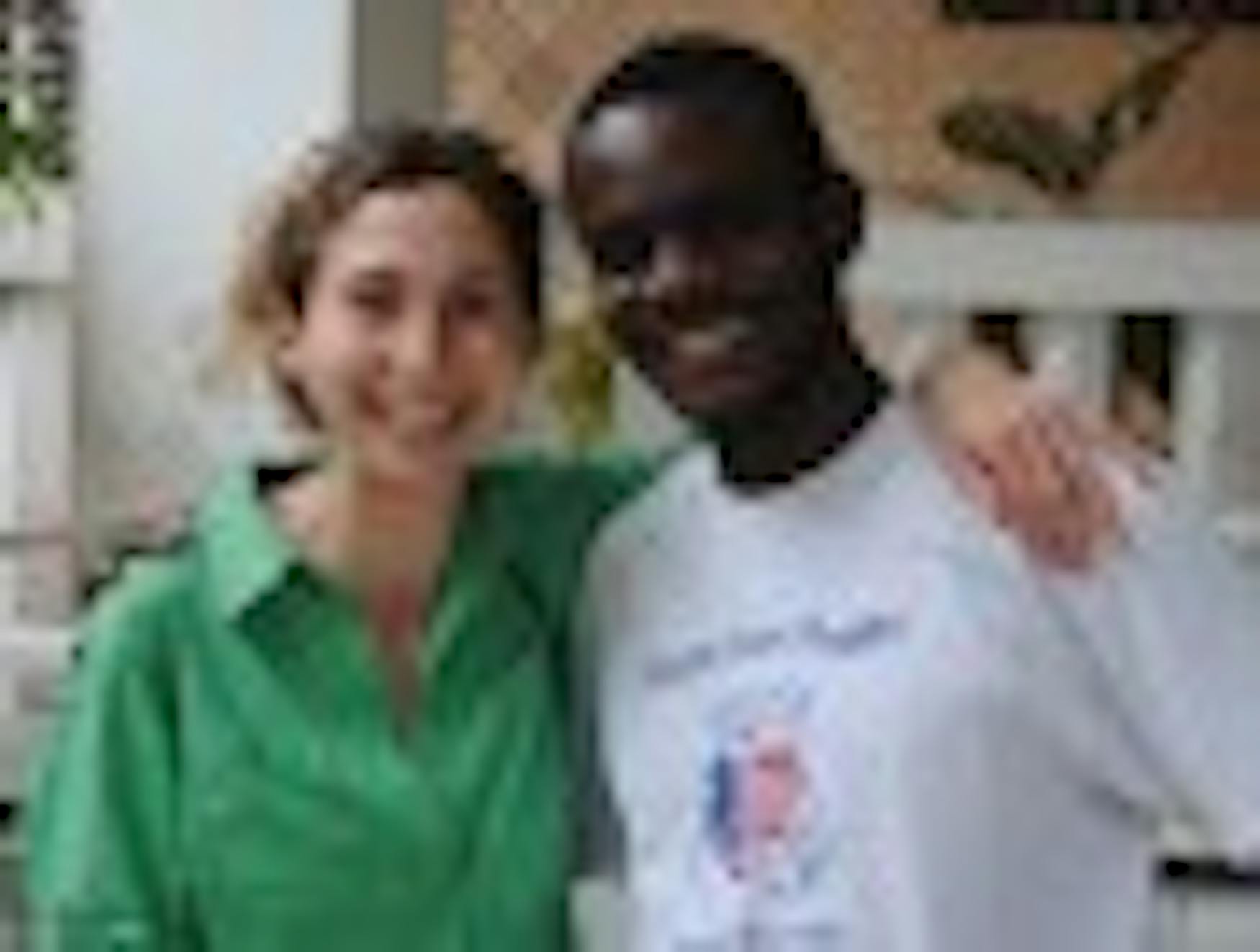Reunion for a worthy cause abroad
Brandeis alumni, all doctors, went to Haiti to lend their medical hand in September.
Correction appendedBefore Sept. 5, Michael Forman, Lisa Fishman, Steven Freilich, Mark Horowitz and Michele Mandel had a few things in common. They were all once Brandeis students and all went into the medical profession. However, that was all that bonded them until just a few weeks ago when the group went on a volunteer medical mission to Haiti. They went not knowing what to expect, and they came back with another shared experience, a broadened view of the world and a story to tell.
The group was part of the Brandeis Haiti Relief Effort, a student-led mission co-founded by Nate Rosenblum '10, and set up to aid Haiti after last year's earthquakes. Rosenblum, who was heavily involved with fundraising for Haiti as an undergraduate, contacted and coordinated with alumni that would be willing to help out in Haiti.
He started this effort with immense dedication to the Haitian people, and although he didn't know he would have as many interested alumni as he did, it certainly turned out to be a success. This comes to show that the Brandeisian devotion to justice and community can remain years after graduation.
Rosenblum, while an undergraduate, contacted alumni in the medical profession from contacts given to him by the alumni office. He invited all of them to be part of this group. More than 20 Brandeis alumni who were working in the medical profession answered Rosenblum's calls and showed interest in volunteering. Eventually, after working around various scheduling conflicts, five physicians and one dentist, impressed by Rosenblum's incredible dedication, traveled to provide medical care to the residents of Les Cayas, Haiti from Sept. 5 to 10. Although the doctors had not known each other previously, there was a "sense of bonding by our common Brandeisian heritage," Horowitz says.
Over the week, the group bonded and became very close; not only were they spending a lot of time together but they were also experiencing intense situations.
"When we were [parting ways] in Miami [at the end of our trip], it was sort of a moving moment ending this intense week together," Horowitz says.
Mandel, currently a pediatrician in New Hampshire, said she went into the trip without any significant expectations or worries, except that "[we] wouldn't have the capabilities to help patients as much as we wanted to."
As expected, help was desperately needed, and the committee moved around various locations. In addition to Les Cayes, they went to Aquin and Charettes and toured the capital Port-au-Prince and neighboring Petionville. In the end, the doctors turned out helping much more than they had originally expected.
The group awoke early in the morning to the sound of church bells and roosters crowing and would then prepare lunch for the long day.
"When we arrived at [the clinics], patients were already waiting to see us," Horowitz says.
The patients, despite being poor, would take extra efforts to clean themselves and dress nicely for the doctors, who were flattered by the gesture.
"We were seeing patient after patient. One day we saw 235 [patients]. Usually, [though], it was between 150 and 200," he continues.
Their mission was not solely to help the victims of the earthquake, but to help the impoverished citizens of Haiti. In fact, the southwest region of Haiti, where they were based was largely spared damage of the earthquake. However, some local residents lost family members in the city or were living in the city and forced to headsouthwest when their homes were destroyed.
Horowitz, whose daughter Jane is a Brandeis junior, is a family physician working in New York City. Horowitz came back impressed with Haiti's beauty, despite his belief that the country has been ruled by corrupt leaders who have been more concerned with their own wealth than the well- being of the people.
"The people are beautiful. Poor and often undereducated, they always smile and have a nice word for a visitor," Horowitz says.
The doctors worked beside Haitian doctors, nurses, pharmacists, laboratory technicians and dedicated health care workers. The cases they saw included malaria, diarrheal illnesses, intestinal parasites, malnutrition, uncontrolled hypertension, diabetes and even a few cases of post-traumatic stress disorder resulting from the earthquake.
Although the range of medications they had available was more limited than what they had in the United States, they had adequate choices of medication to use such as antibiotics for malaria and intestinal parasites. Going to Haiti was not just about helping the victims of the earthquake.
"To go to a place where health care is not an expectation but rather a privilege is amazing," Mandel says. People who live in Haiti's poverty were not accustomed to having routine health check-ups, so having a doctor to talk to for even a few minutes was comforting for the patients.
For the doctors, it was a call away from their comfort zone. It took them out of their everyday world of patient care and transported them to a different reality.
"I was impressed with what efforts have been done by some of the organizations there with the little resources they have," Mandel says. "I gained a whole new appreciation for what the conditions are like in Haiti. And although I knew I would be affected by what I saw and experienced there, I had no idea how deeply affected I would become," Mandel says, when talking about the lasting impressions she is taking with her.
The doctors would love to plan to go back to Haiti in the future and even take Brandeis students with them .
"I've been bitten by the bug and intend to return to Haiti, probably with the same organization," Horowitz adds.
Correction: The article originally misspelled the surnames of two of the doctors. They are Lisa Fishman and Steven Freilich, not Lisa Fishaman Steven Fralik.



Please note All comments are eligible for publication in The Justice.